Institutional Organizational Analysis - Change and Transformation - 5+1 ECTS
Professor Tammar Zilber
Department of Organization, CBS & Hebrew University of Jerusalem
Professor Renate Meyer
Department of Organization, CBS & WU Vienna
Prerequisites
Phd students are required required to present a five-pages (maximum) written presentation in which they relate the curriculum literature in the course to their project. The presentation must include specific references to the literature applied. Deadline for submission of course paper is 23 August 2025. This written presentation will be shared with other students and students will present their project in the course and will receive feedback on it.
The student presentation should provide material for discussion in minor groups during the course, and the student must be willing to participate in discussions of other presentations.
It is a precondition for receiving the course diploma that the student attends the entire course.
Aim
Course Content
Teaching style
Project discussions (online)
Exam
Course Literature (preliminary)
Alvesson & Spicer (2019). ‘Neo-institutional theory and organization studies: A mid-life crisis?’ Organization Studies, 40(2), 199-218.
Battilana, Leca & Boxenbaum (2009). ‘How actors change institutions: Toward a theory of institutional entrepreneurship’. Academy of Management Annals, 3, 65-107.
Berg Johansen & Waldorff (2017). ‘What are institutional logics - and where is the perspective taking us?’ In Kruecken, Mazza, Meyer, & Walgenbach (Eds.): New Themes in Institutional Analysis: 51-76.
Boxenbaum & Jonsson (2017). ‘Isomorphism, diffusion and decoupling: concept evolution and theoretical challenges’. In Greenwood, Oliver, Lawrence, & Meyer (Eds.), The Sage Handbook of Organizational Institutionalism, 2nd ed.: 79-104.
Brandtner, Powell, & Horvath (2023). ‘From iron cage to glass house: Repurposing of bureaucratic management and the turn to openness’. Organization Studies,10.1177/01708406231200727.
Czarniawska & Joerges (1996). ‘Travel of ideas’. In Czarniawska & Sevon (Eds.), Translating Organizational Change: 13-47.
DiMaggio & Powell (1983). ‘The Iron cage revisited: Institutional isomorphism and collective rationality in organizational fields’ (chapter 3 in Powell & DiMaggio, 1991)
Drori (2019). ‘Hasn’t institutional theory always been critical?!’ Organization Theory, 1(1), doi 2631787719887982.
Drori (2025 forthcoming). ‘Institutional stress: Academic freedom under attack by democratic backsliding.’ Organization Studies
Friedland & Alford (1991). ‘Bringing society back in: Symbols, practices and institutional contradictions’ (chapter 10 in Powell & DiMaggio, 1991).
Galleli & Amaral (2025). ‘Bridging institutional theory and social and environmental efforts in management: A review and research agenda.’ Journal of Management, 01492063251322429.
Grafström, Jonsson & Klintman (2023). ‘Embracing the academic–practice gap: Knowledge collaboration and the role of institutional knotting’. Management Learning, pp.1-24.
Gümüsay & Amis (2020). ‘Engaging with grand challenges: An institutional logics perspective.’ Organization Theory, 1(3).
Jancsary, Meyer, Höllerer, & Boxenbaum (2018). ‘Institutions as multimodal accomplishments: Towards the analysis of visual registers’. In: Research in the Sociology of Organizations (Multimodality, Meaning, and Institutions) 54A, 87-117.
Jancsary, Meyer, Höllerer & Barberio (2017). ‘Toward a structural model of organizational-level institutional pluralism and logic interconnectedness’. Organization Science, 28(6), 1150-1167.
Lawrence, Leca & Zilber (2013). ’Institutional work: Current research, new directions and overlooked issues’. Organization Studies, 34(8), 1023-1033.
Lawrence & Suddaby (2006). ’Institutions and institutional work.’ In Clegg, Hardy, Nord, & Lawrence (Eds.), SAGE Handbook of Organization Studies, 2nd ed.: 215-254.
Lechterman & Mair (2024). ‘Social enterprises as agents of social justice: A Rawlsian perspective on institutional capacity’. Organization Studies, 45(9), 1301-1323.
Leibel, Hallett & Bechky (2018). ‘Meaning at the source: The dynamics of field formation in institutional research’. Academy of Management Annals, 12(1), 154-177.
Leixnering, Meyer & Doralt (2022). ’The past as prologue: Purpose dynamics in the history of the aktiengesellschaft’. Research in the Sociology of Organizations, 78, 97-120.
Meyer, J. & Rowan (1977). ‘Institutional organizations: Formal structure as myth and ceremony’ (chapter 2 in Powell & DiMaggio, 1991)
Meyer, R. (2008). ‘New sociology of knowledge: Historical legacy and current strands’ In Greenwood, Oliver, Suddaby, & Sahlin (Eds.), The Sage Handbook of Organizational Institutionalism: 519-538.
Meyer, Jancsary, & Höllerer (2021). “Zones of Meaning, Leitideen, Institutional Logics” in Research in the Sociology of Knowledge, 70, 161-186
Munir (2019). ‘Challenging institutional theory’s critical credentials’. Organization Theory, 1(1), doi 2631787719887975.
Powell (1991). ‘Expanding the scope of institutional analyses’ (chapter 8 in Powell & DiMaggio, 1991).
Røvik (2016). ‘Knowledge transfer as translation: Review and elements of an instrumental theory’. International Journal of Management Reviews, 18, 290-310.
Strang & Meyer, J. (1993). Institutional conditions for diffusion. Theory and Society, 22(4), 487–511.
Wedlin & Sahlin (2017). ’The imitation and translation of management ideas’. In The SAGE Handbook of Organizational Institutionalism (2nd ed.): 102-127.
Wooten & Hoffman (2017).’Organizational fields: Past, present and future’ In The Sage Handbook of Organizational Institutionalism, 2nd ed.: 55-74.
Wæraas & Nielsen (2016). ‘Translation theory “translated”: Three perspectives on translation in organizational research.’ International Journal of Management Reviews, 18, 236–270.
Zilber (2020). ‘The methodology/theory interface: Ethnography and the microfoundations of institutions’. Organization Theory, 1(2), 1-27.
Zilber (2024). ’Narrating institutional logics into effect: Coherence across cognitive, political, and emotional elements.’ Administrative Science Quarterly, 69, 172-221.
Course Diploma
PhD students must participate in the entire course to be eligible for the course diploma. The diploma will be issued after the last day of the course or following any exam or assignment due after the course. It will be sent to the email address you provided during registration.
The binding registration deadline is 11 August 2025. If you wish to cancel your registration, you must do so by this date. After the deadline, we will assess whether there are sufficient registrations to run the course and, if necessary, allocate seats if demand exceeds capacity.
If seats remain available after this deadline, the registration period may be extended to fill the remaining seats.
Please note that once you receive our acceptance or welcome letter, your registration becomes binding, and no refunds of the course fee will be issued.
Information about the Event
Date and time Monday 22 September 2025 at 13:00 to Friday 26 September 2025 at 15:00
Registration Deadline Monday 22 September 2025 at 23:55
Location
Kilen - room KL4.74 (fourth floor)
Kilevej 14A
Frederiksberg
DK-2000
Organizer
Nina Iversen, CBS PhD School
Phone +45 3815 2475
ni.research@cbs.dk
 Loading
Loading



